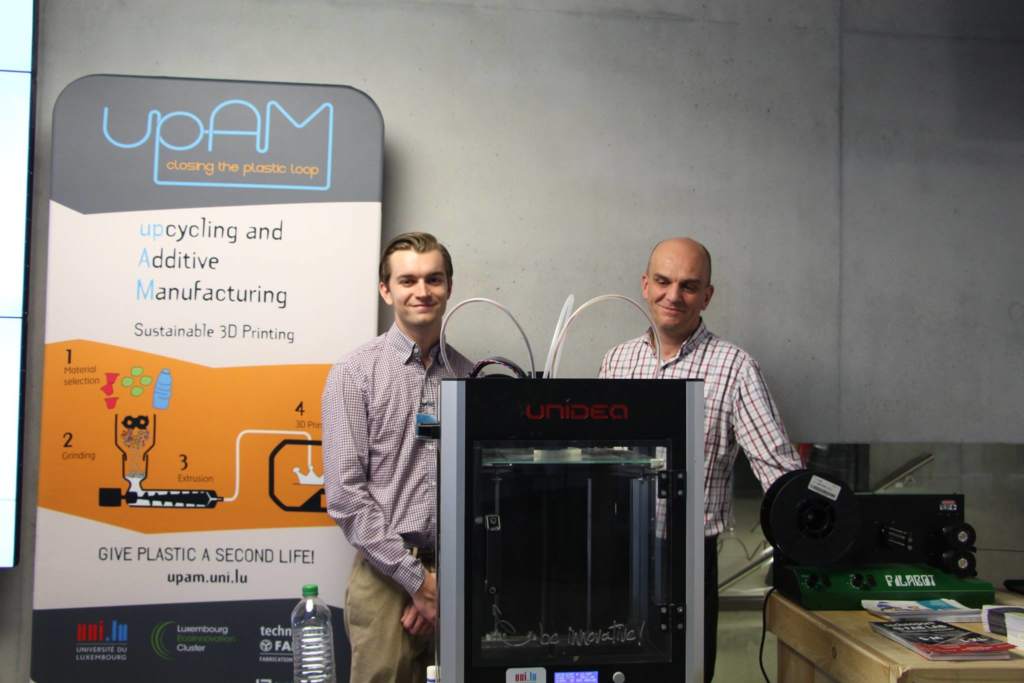In the linear economy raw materials are extracted, goods produced and consumed and then the waste discarded.
However an alternative, using 3D printing, is possible according Claude Wolf and Slawomir Kedziora from the University of Luxembourg’s Faculty of Science, Technology and Communication.
The researchers describe this as the Circular Economy (CE) – “reusing products, repairing, recycling, and upcycling.”

Interactive installation produces a recycled product
Writing in the journal “Revue Technique Luxembourgeoise” the researchers describe a system they call upAM. The upAM project combines 3D printing with the ability to recycle plastic waste so, “any individual can produce their own products.”
A complete autonomous system of the 3D printing process was developed, where materials – disposable polymer products were transformed into new products. The new products would have a similar or higher quality than the old ones in terms of stiffness, weight, surface roughness, function and / or precision. This process proposes to close the loop of a product life, from waste materials through the generation of a filament wire and then manufacturing of the new final products using the technology of FDM additive manufacturing.
Recycling failed 3D prints
The system has three stages, a shredder to grind the waste products, fabrication of polymer filament and, 3D printing using the new filament.
Both PLA and ABS filaments were created and printing using the upAM system. “The up-cycled product has similar quality and robustness to an equivalent product made using raw material,” say the researchers.
While the system is not designed for industrial use the researchers have used it as an education aid and a tool to motivate people to study engineering. The upAM recycling system is also in use at the University of Luxembourg and students can recycle unwanted or failed plastic prints.
If you’re interested in building a similar project the full details of the upAM project are available online here. You can also visit a website set up to track the ongoing activity of the project.
For all the latest 3D printing news, subscribe to the most widely read newsletter in the 3D printing industry, follow us on twitter and like us on Facebook.



